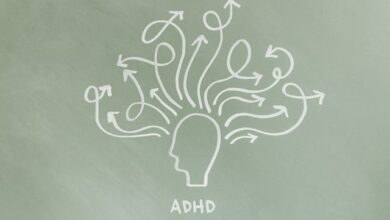
Image Source: Unsplash
Grief impacts everyone differently. You might not handle the death of a loved one the same way someone else does. But, it’s important to find healthy ways of coping with a loss. Learning how to carry on after someone’s passing will allow you to step into the next chapter of your life without suffering.
Far too often, people turn to unhealthy coping mechanisms when they’re trying to get through difficult times. Erratic behaviors, drinking or substance abuse, or falling into a depressive state are all fairly common when someone doesn’t know how to cope the “right” way.
So, what can you do to find healthy coping mechanisms? How can you continue to move forward in your life when someone you love is gone? Let’s cover a few tips that will allow you to get through the grieving process safely and stably.
Stay Active
When you’re grieving, your focus should be on your mental health. But, to take care of your mental wellbeing, it can help to focus on your physical health. Exercising regularly has many mental benefits. It can help with:
- Boosting your mood
- Giving you more energy
- Fighting off depression
- Reducing feelings of anxiety
Exercising outside can be an additional mood booster. Plus, it can help with physical issues like varicose veins, cardiovascular health, and even weight management. Try activities like hiking, walking, cycling, or swimming to improve your mood and your focus, and spend some time “clearing your head.”
Staying active will also keep you from becoming a victim to the couch. It can be tempting to lay down and binge-watch your favorite shows while eating a tub of ice cream when you’re grieving. Doing things like that in moderation is okay. Finding comfort in a show, a certain food, or even music can be beneficial in small doses. But, watching television for long periods of time can actually increase feelings of depression and put you at risk of dopamine depravity. Exercise helps you to fight against the temptation to binge-watch and allows you to put your health first.
Be More Mindful
Mindfulness can feel like a bit of a buzzword nowadays. But, it’s become so popular because it’s so effective. People use it to reduce anxiety, deal with symptoms of PTSD, and manage their stress levels.
Mindfulness and meditation go hand-in-hand, and you certainly won’t be alone if you give it a try. It’s estimated that anywhere from 200 million to 500 million people around the globe meditate. You don’t need to sit in certain poses or perform any chants to be more mindful, and you can do it in just a few minutes a day.
Mindfulness is the practice of focusing on the present. It allows you to let go of the past and worries of the future in favor of thinking about the moment that you’re in. By closing your eyes, focusing on your breathing and your surroundings, you can enjoy a few minutes of peace. You might be surprised at how those few minutes can make a big difference in the rest of your day. If you want to improve your awareness while practicing mindfulness, try these tips:
- Be patient with yourself
- Set a mindfulness goal
- Spend time in nature
- Slow down
- Focus on one thing at a time
Mindfulness is a “practice” because it takes time and effort to do it effectively. But, the more you do it, the more you’ll start to benefit from it so you can use it to cope with your grief.
Don’t Go Through It Alone
When you lose someone you care about, it’s easy to feel alone – even when you’re surrounded by people.
It’s important to remember that you don’t have to go through the grieving process alone. Doing so can make it easier to feel depressed, and isolation can cause both mental and physical health problems. Reach out to family members or friends who are also connected to the person you lost. Sharing your grief can be cathartic and help you both to get through it.
If you’re really struggling, consider joining a support group or talking with a therapist or counselor. Sometimes, it’s easier to share what you’re feeling with someone neutral or someone “away” from the situation. Friends and family are usually supportive and have good intentions, but may not always know the best things to say.
It’s always better to reach out for help before you turn toward a coping mechanism you’ll regret later on. Is it difficult to admit that you’re struggling to another person? Yes. But, when you’re able to do that, you can take comfort in knowing you’re actively dealing with the stages of grief. Acceptance is the final stage, but it doesn’t mean you’re “magically” okay with everything.
Acceptance goes along with hope. When you choose to talk to someone about your grief, you’re giving yourself hope for a brighter future. It doesn’t require forgetting the person you lost, and there will still be times of pain. But, by finding healthy ways to cope, you can continue to live your life in a way that would make that person happy and proud.




